- Home
- Anne Bishop
The Pillars of the World ta-1 Page 4
The Pillars of the World ta-1 Read online
Page 4
A whine made her look to her left. Her lips softened in the beginning of a smile.
The shadow hounds were her joy—sleek and lethal, with beautiful gray coats streaked with black. When they ran, they were moonlight and shadow in motion, and there was no prey, on four legs or two, that was fast enough or clever enough to elude them when they hunted.
The bitch whined again, wagging her tail hesitantly.
Dianna almost extended her hand to welcome the hound. Then the three puppies from the bitch’s last litter joined their mother, and Dianna remembered why this bitch was no longer her favorite, why she could no longer give the petting and praise that had once come so easily.
Two of the puppies were perfect. But the third . . .
The tan forelegs that marred the lovely blend of gray and black were a constant reminder that the bitch had pursued a different kind of hunt the last time Dianna had taken the pack through the Veil.
It was one thing for a Fae male to plant a child in a human woman. After all, the woman was getting a better offspring than she ever could have gotten from a human male, even if the child wouldn’t have any magical gifts. It was quite another to allow inferior creatures to live in Tir Alainn.
She should have had the pups destroyed the minute she’d seen that one. They couldn’t be allowed to breed since the sire’s influence could well show up in the next generation, even from the pups who showed no sign of him now. But the bitch had been so fiercely protective, allowing no one to get near her pups until Dianna came into the kennels. The animal had been so pleased to see her, so willing to share her pups with her mistress . . .
She had given the bitch the praise and petting it had wanted, and she’d given no orders that would end the puppies’ existence, but she hadn’t been able to force herself to touch the bitch since that day.
Dianna turned away, ignoring the bitch’s unhappy whine.
There had been times when a Fae woman would find a human male enticing enough to enjoy him. And there had been times when that enjoyment had resulted in a child. But no Fae woman kept such a creature in Tir Alainn. That kind of child was left on the sire’s doorstep for him to do with as he chose.
Now that the pups were weaned, perhaps she should do the same with them. Just leave them in the human world the next time she passed through the Veil.
No, that was unacceptable. The shadow hounds belonged to the Fae. If humans were to acquire even mongrel pups, the shadow hounds would no longer belong exclusively to the Fae. They would become . . . diminished, ordinary. And that was unthinkable. Which meant she would have to find something else to do with the worthless puppies.
“Shadows surround the moon, sister,” a baritone voice said. “Is it your mind or your heart that travels a dark path?”
The voice made her focus on the man standing in front of her.
“I could ask the same of you, Lucian,” Dianna replied.
Saying nothing more, he offered his arm. As they strolled the gardens together, Dianna studied him out of the corner of her eye.
He was her twin, her opposite, and her equal. Their mother once said that they must have gotten mixed in the womb because they reflected the opposite of what they were. In a way, that was true. She, who was the Lady of the Moon, was the golden one—fair hair and amber eyes, and skin that warmed to the sun’s kiss— while he had black hair, gray eyes, and fair skin the sun couldn’t touch. But he was the Lord of the Sun, the Lord of Fire. The Lightbringer.
“Are you going to cross the Veil tonight?” Dianna asked.
“I haven’t decided,” Lucian replied curtly.
Lyrra was right, Dianna thought. This mood of his bodes ill for everyone. “I think you should. You didn’t seem to enjoy your last visit to one of the other Clans. It was mentioned that you weren’t a receptive guest.” Which is why she had felt defensive when Lyrra had pointed out that Lucian was avoiding company. It was unusual for a Fae male to refuse an invitation to a woman’s bed when he was guesting at a Clan house. It was, in fact, considered ill mannered for him to repeatedly refuse unless he was already having an affair and had promised a modicum of fidelity. So the veiled complaints that had been entwined in the flowery phrases of the messages she’d received had disturbed her and made her quick to take his side of the argument—even before an argument had actually surfaced. He was her brother. It was second nature to take his side in any disagreement—unless, of course, he was disagreeing with her.
She almost jerked away from him when she felt his temper begin to rise. It took effort to keep her arm lightly linked with his when he turned his head to look at her and she could see his eyes clearly.
“I don’t keep track of what you do in your bed, sister,” he said with deadly control. “What makes you think you have any right to keep track of what I do in mine?”
Dianna swallowed carefully. “It is less in my nature than it is in yours to seek that kind of company.” She knew it had been the wrong thing to say a moment before he pulled away from her. “Lucian—”
“What favors haven’t I granted that they should complain to my sister?” he snarled. “What is it that they feel they can’t get from me by making an honest request instead of tying it to the bed?”
“It isn’t like that,” Dianna protested.
“Isn’t it?” Lucian paced away from her, turned, came back. “Who is it that refused their invitation, Dianna? Lucian . . . or the Lightbringer?”
“You are the Lightbringer, so how—”
“Which one?” he demanded. “When they pouted to you, which one did they say failed to accept their lures?”
She didn’t answer him. Didn’t dare. Not with the mood he was in. What was wrong with a woman wanting the strongest and the best for a lover and, possibly, to be the sire of her child? When had this bitterness in him started? It was rooted too deep to be solely because of that last visit to another Clan. Why hadn’t she seen this in him until now? And how could she aim that fury at a target that wasn’t his own kind?
“It is customary to grant a boon for the pleasure of the bed,” she said carefully. “That is our way.”
“Have you considered that the price may no longer equal the pleasure?” he said softly. His face hardened.
“I dance to no one’s tune. You can send that message back to the Clans.”
This time, when he turned away from her, he kept going.
Dianna didn’t follow him. There was no argument she could have made that would have softened his mood. And the truth was, she hadn’t made the distinction that he had. Now, thinking back on the way those messages had been worded, she wondered if he was right. Had the women in the other Clan been disappointed that none of them had enjoyed Lucian as a lover, or had they been disappointed not to have a required favor from the Lightbringer, who could command anything and everything in Tir Alainn except the Lady of the Moon?
Dianna headed back to the Clan house, needing the solitude of her own rooms.
She hoped Lucian did take the road through the Veil tonight, but she felt a moment’s pity for whatever, or whoever, crossed his path.
Hearing Aiden’s harp, Lucian headed in another direction. He wasn’t interested in talking to anyone, and certainly wasn’t interested in being on the receiving end of the Bard’s sometimes-barbed speech. So he headed to the one place in the gardens he had avoided all morning.
He hesitated a moment, then walked down the steps under a stone arch. Stone rose up around him. Above him, the trees formed a canopy, letting in dappled sunlight. He could still hear Aiden’s harp, but now it blended with the stir of leaves, a natural song that offered comfort.
Like this place, he thought as he followed the path, his fingers brushing against the stone. He couldn’t say why this place felt different from the rest of the gardens, but the silence here was richer, rooted in a peace that could drain the heart of any sorrows.
Maybe his anger wasn’t fair. A handful of the roads that led from Tir Alainn to Sylvalan had closed, and many
of the ones that were still open were harder to use. The Fae couldn’t stop a road from closing, nor could they create a new one. They were the Mother’s most powerful children, but that piece of magic had been lost to them. It was even getting harder to travel between Clan territories. They were islands of land connected by bridges that spanned mist. Sometimes, even when a road wasn’t closing, the mist claimed a bridge, breaking the connection between two Clans.
So he could understand why the Clan women would want the use of any male who wasn’t kin while they still had access to him. But fire was too much a part of his nature, and he didn’t like the coldness that had crept into the bedding. In the past two years, since he’d become the Lightbringer, the gleam in the eyes of Fae women who invited him to their beds had seemed more calculating than lustful, more shrewd than desiring.
Perhaps it wasn’t coldness that crept into the bed with him lately. Perhaps it was simply boredom. He knew what to expect, knew what was given and what was taken, knew it so well it had all become less than what it had been. What he didn’t know was why it felt that way.
He was twenty-four years old. That was far too young to have become bored with sex. But, perhaps, the number of women he’d enjoyed during his first year as the Lord of the Sun accounted for his waning interest now. Or perhaps his passion had slumbered like the winter sun and had not yet quite reawakened. He felt the waxing and waning of power now more than he had when he was just another young Lord of Fire.
Waxing and waning. Like the sun through the seasons. Like the moon through its cycle. Like the Fae who were the leaders of their respective gifts.
It seemed like every other Clan had a Lord of Fire, but only one might feel his power swell on Harvest Eve as he stood before the man who already held the title. Only one might eclipse the old Lord’s waning strength and became the Lord of Fire, the Lord of the Sun, the Lightbringer. And while a challenge wasn’t issued every year, the young Lords of Fire still gathered on that night wherever the Lightbringer chose to measure their strength against his. And sometimes an impatient fool tried to wrest the title from the one who held it before the old Lord’s power had sufficiently waned. A fool could discover that defeat was sometimes brutal—sometimes even fatal. But when the time, and the challenger, was right, the challenge was merely a formality, a ritual that allowed the old to yield to the new.
And so it was with all of the Fae. They didn’t meet at the same place or at the same time, but for every magical gift the Fae could claim, there was one of them who commanded all the others who shared that particular gift. And all those who commanded the others followed the Lord of the Sun and the Lady of the Moon.
So it wasn’t strange that he was sought after more now than he’d ever been before, but it had surprised him to feel more alone at the same time.
Lucian shook his head. He was brooding again, and if he returned to the Clan house before shaking off this mood, Aiden would haul out some tune about the follies of those who ruled that would prick and sting the ego. The Bard’s sharp mind and sharper tongue asked for no mercy and seldom gave it, even to those who could claim kinship.
Besides, there were better reasons to brood.
Aiden and Lyrra had quietly sent messages to the bards and storytellers among the Fae. None of the storytellers had heard of the wiccanfae, and the only songs about witches that were sent back to Aiden were the ones he’d already heard. If the storytellers and bards knew almost nothing about their potential enemy, the rest of the Fae certainly wouldn’t have heard of the wiccanfae.
Mother’s mercy! How could they protect Tir Alainn when they didn’t even know where these creatures had come from? Had they come over the mountains that formed the eastern border of Arktos and Wolfram? Was that why the Clans whose territories had been anchored to the Old Places in those human countries had disappeared first? Could it be as simple, and ugly, a thing as a fight for land? Could these witches have destroyed the roads through the Veil so that they could claim the Old Places for themselves?
Questions nested within questions, but neither he nor Aiden nor Lyrra nor Dianna had found any answers. The only bards who had heard the songs about the witches traveled through the eastern part of Sylvalan. The ones who traveled through the midlands had heard nothing at all, and the ones from the western Clans . . . Well, they didn’t have much to do with the rest of the Fae anyway. They had to be invited for the challenges, although, thankfully, most of the time none of them came. And when they did . . . It was embarrassing to have to acknowledge them as Fae. There was a roughness about them no veneer of manners could hide. And being around one of them made everyone else . . . uncomfortable.
Shaking his head, Lucian left his private spot in the gardens. Until they had some answers, there was nothing he could do. So he would travel the road through the Veil tonight, but not for the reason Dianna thought. He would take a long, hard ride under the full moon and enjoy a different kind of mistress. The Great Mother. The land in the human world. Unlike the other females he was familiar with, she always remained intriguing.
Chapter Five
Adolfo secured the latch on the window, then pulled the draperies across it, closing out the coming night. The meal he’d ordered sat on the table, cooling.
Crossing to the table, he poured a glass of wine but didn’t drink.
Tonight was the Summer Moon, a night of magic and loose morals, a night when any decent man stayed inside once the moon rose and kept himself safe behind stout walls and strong locks.
Why had one of the carriage horses thrown a shoe late in the afternoon, forcing him to stay at this inn instead of arriving at Squire Westun’s house in Bainbrydge as he had planned? And why would the coachman who had worked for him for the past two years suddenly suggest that they could continue on this evening once the horse got a new shoe, that the full moon would light the road almost as well as the sun? Why would a man who should have known his employer better suggest that they’d be safe enough if they bought a few fairy cakes and a couple of bottles of wine to appease anyone they might meet on the road?
Mischance or mischief? Had it been luck that this inn had been a couple of miles down the road? Or had the horse lost the shoe precisely as intended so that he would be forced to spend the night here?
He sensed no magic around this place, and he could sense magic as keenly as a harrier could catch a rabbit’s scent. But just because he couldn’t sense it didn’t mean magic wasn’t the cause. Ill-wishing wasn’t an immediate spell; it exploited a weakness, turning it into misfortune, great or small.
Had his coachman’s eyes looked too bright, too eager when the man had suggested traveling tonight? Fairy cakes and wine. Did the fool actually believe that would keep a man safe from the Fae?
That had been the thrust of it. The coachman was hoping to meet a creature he’d only heard of in stories, was hoping for a slightly dangerous encounter with one of the Fae.
Damn fool. The Fae weren’t as dangerous as they sounded in the stories—at least, not anymore—but they couldn’t be dismissed either. They had magic, and magic equaled power to control the world, even if it was only one small piece that responded to a particular kind of magic. Oh, they all had the magic of persuasion, the ability to cloud a weaker mind to make a person do their bidding, and they had the glamour that could hide their true faces and make them look human. Beyond that, their magic was tied to a particular skill or thing in the world. That could make them dangerous, depending on what their magic could command. Still, they were only visitors who rode down their shining roads from the Otherland to amuse themselves in the human world—or seduce foolish young women or lure equally foolish young men to their doom. They were like the Small Folk in that they avoided the strongholds of civilization—the cities, the larger towns and villages. The places where men ruled. And they were like the Small Folk in that, once the land was tamed and scoured clean of its magic, they went away. In Wolfram, there were still new stories of meeting one of the Small Folk in the deepest pa
rt of a forest, but it had been many years since anyone had seen one of the Fae.
Adolfo lifted the cover off his plate, then sat down, intending to consume his meal.
The coachman would have to be dealt with. Obviously being in a country that stank of magic for even a few weeks had affected the man to the point where he was no longer trustworthy. And having too much idle time to gossip with Sylvalan coachmen and grooms was changing the unpalatable into the romantically intriguing.
Adolfo sat back, the food untouched.
Men—human men—were meant to be the masters of the world, but the land was like a coy mistress who would be bountiful one day and withhold her treasures the next. It had to be conquered, stripped of its wildness.
Rather like women. No man who allowed himself to be captivated by the lures of breasts and thighs could call himself his own master—at least, not until he had torn out everything that needed to be stripped from a woman before she would submit to being a proper helpmate. Then, as with the land, he could enjoy the bounty as a man should. Neither land nor woman was as alluring when tamed, but both were far more useful.
Twenty years ago, in Wolfram, his homeland, the men had been ripe for change, and he had given them the key that had helped change flood the country. Men were the conquerors now, the rulers who held the land, and women’s lives, in their hands.
The gentry in Sylvalan were ready for change too. Their land was yielding less and less each year, and many of them resented the bounty they couldn’t touch—rich land owned by women whose magic stood in their way.

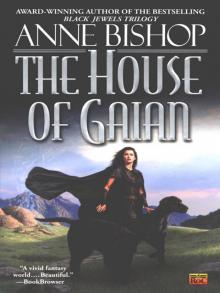 The House of Gaian
The House of Gaian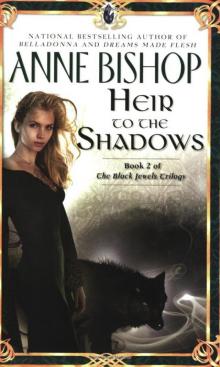 Heir to the Shadows
Heir to the Shadows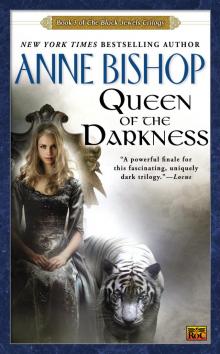 Queen of the Darkness
Queen of the Darkness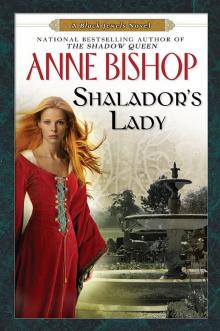 Shaladors Lady
Shaladors Lady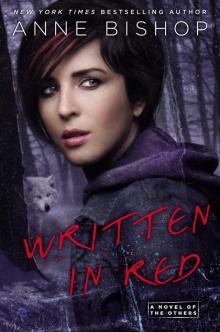 Written in Red
Written in Red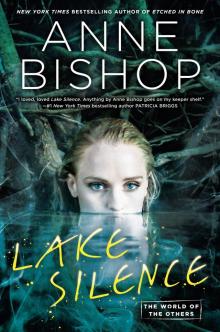 Lake Silence
Lake Silence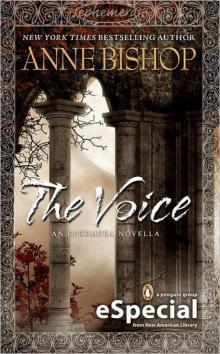 The Voice
The Voice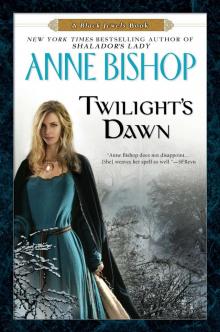 Twilights Dawn
Twilights Dawn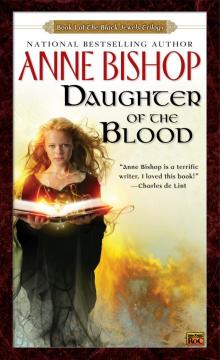 Daughter of the Blood
Daughter of the Blood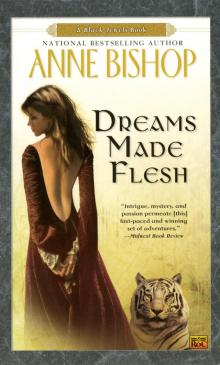 Dreams Made Flesh
Dreams Made Flesh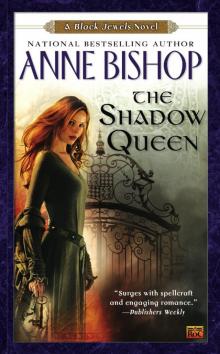 The Shadow Queen
The Shadow Queen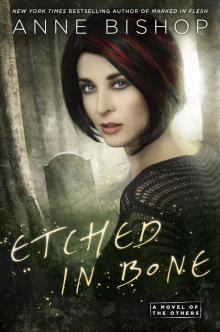 Etched in Bone
Etched in Bone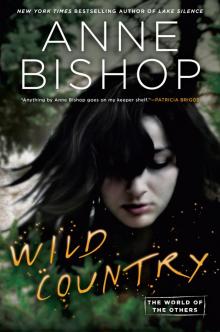 Wild Country
Wild Country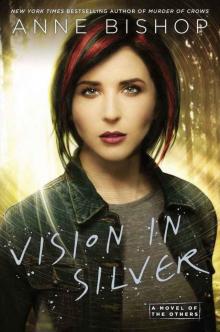 Vision in Silver
Vision in Silver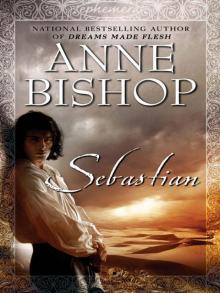 Sebastian
Sebastian Shadows and Light
Shadows and Light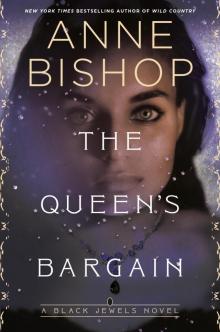 The Queen's Bargain
The Queen's Bargain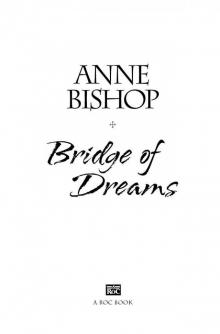 Bridge of Dreams
Bridge of Dreams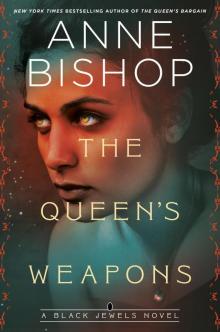 The Queen's Weapons
The Queen's Weapons Pillars of the World
Pillars of the World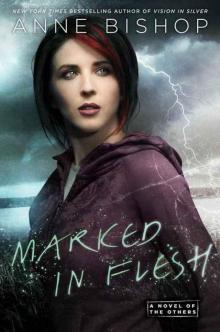 Marked in Flesh
Marked in Flesh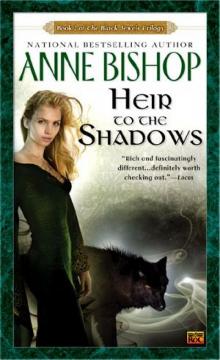 Heir to the Shadows dj-2
Heir to the Shadows dj-2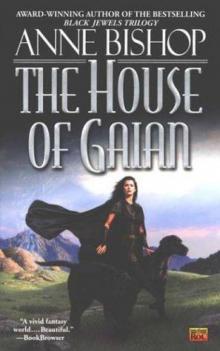 The House of Gaian ta-3
The House of Gaian ta-3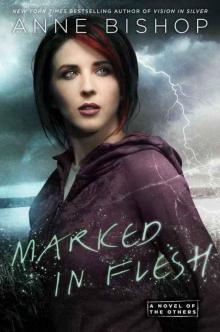 Marked In Flesh (The Others #4)
Marked In Flesh (The Others #4)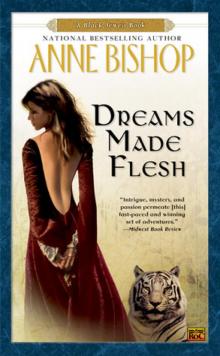 Dreams Made Flesh bj-5
Dreams Made Flesh bj-5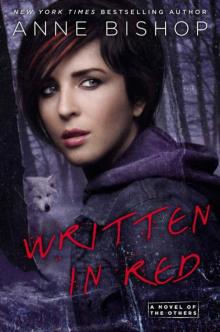 Written In Red: A Novel of the Others
Written In Red: A Novel of the Others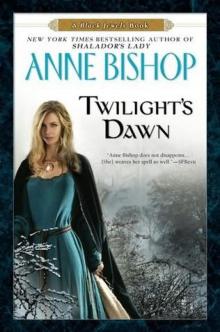 Twilight's Dawn dj-9
Twilight's Dawn dj-9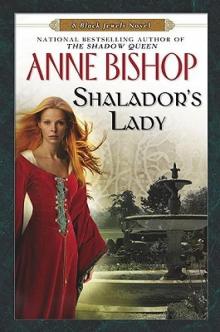 Shalador's Lady bj-8
Shalador's Lady bj-8 The Pillars of the World
The Pillars of the World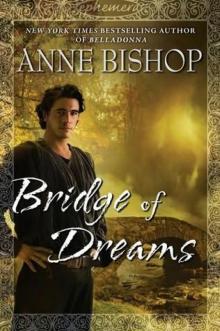 Bridge of Dreams e-3
Bridge of Dreams e-3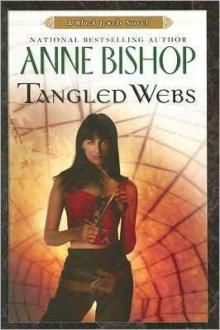 Tangled Webs bj-6
Tangled Webs bj-6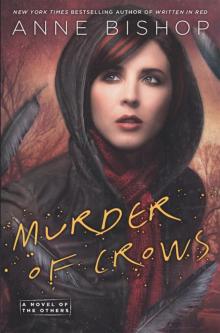 Murder of Crows: A Novel of the Others
Murder of Crows: A Novel of the Others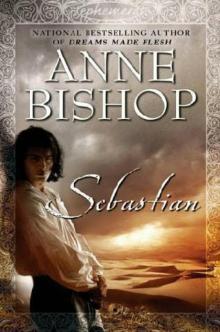 Sebastian e-1
Sebastian e-1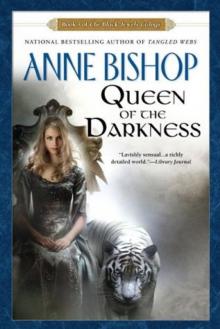 Queen of the Darkness bj-3
Queen of the Darkness bj-3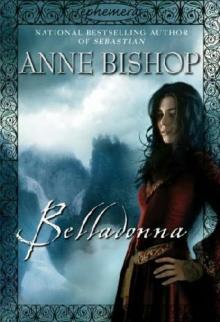 Belladonna e-2
Belladonna e-2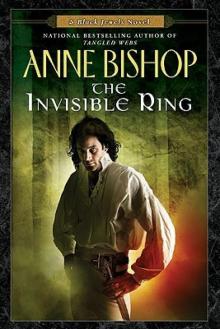 The Invisible Ring bj-4
The Invisible Ring bj-4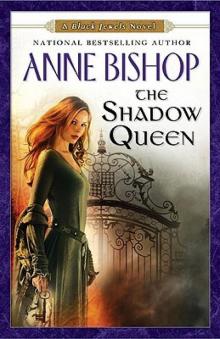 The Shadow Queen bj-7
The Shadow Queen bj-7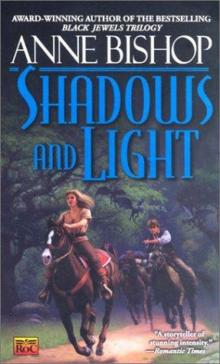 Shadows and Light ta-2
Shadows and Light ta-2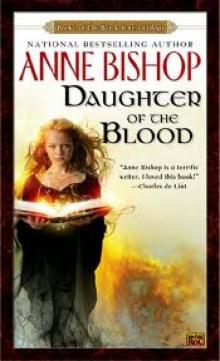 Daughter of the Blood bj-1
Daughter of the Blood bj-1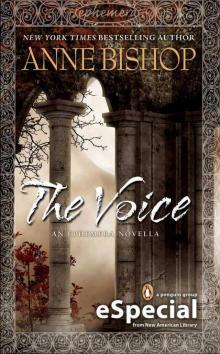 The Voice: An Ephemera Novella(An eSpecial from Roc)
The Voice: An Ephemera Novella(An eSpecial from Roc)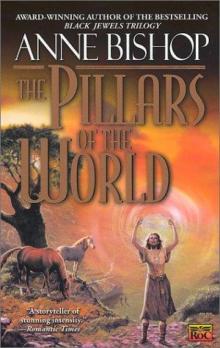 The Pillars of the World ta-1
The Pillars of the World ta-1